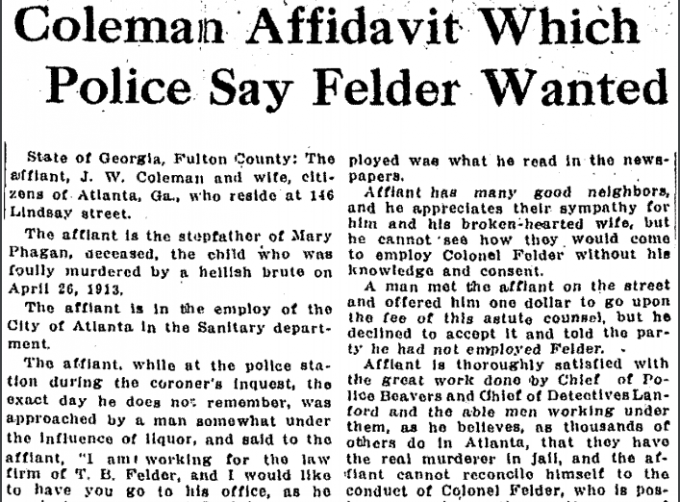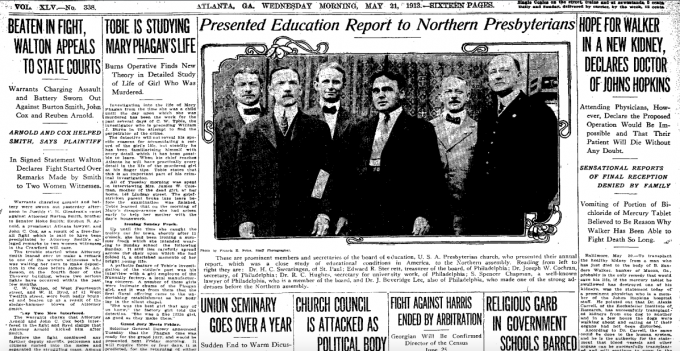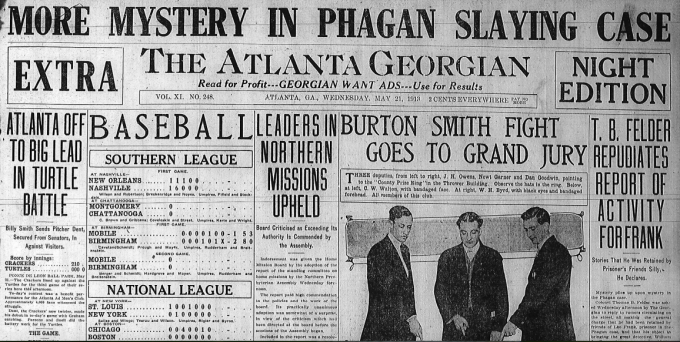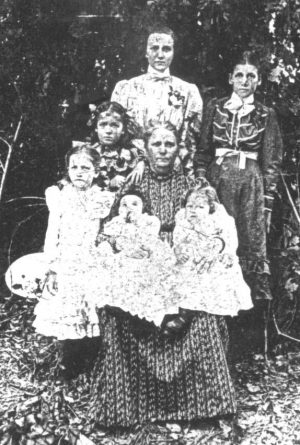Another in our series of new transcriptions of contemporary articles on the Leo Frank case.
August 11th, 1913
Atlanta Georgian
By TARLETON COLLIER.
That black-clad woman in the corner of the courtroom—nobody has noticed her much. Things have happened so swiftly in the Frank trial that all eyes are on the rush of events, waiting for a quiver on the face of Leo Frank, watching with morbid gaze the brave faces of Frank’s wife and his mother, studying the passing show that the numerous witnesses present.
And the woman is so unobtrusive, so plainly out of it all. The tears, whose traces are evident on her face, were not shed as a result of this trial. The lines under her eyes are older than two weeks. Her sorrow—and it is plain that she has undergone sorrow—came some time ago. Now, the first poignant pain of it has passed and only a dull ache remains.
All that is plain as she sits in the courtroom in an attitude which bespeaks much of listlessness and resignation. The thoughts that pass in her mind are revealed in that attitude and in her placid face. And the sum of them is this:
No matter what happens, the dull ache will always be there at her heart.
Continue Reading →














 Another in
Another in 



